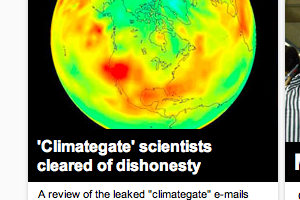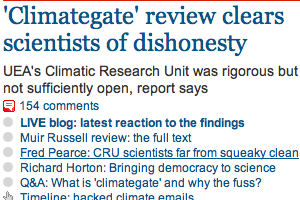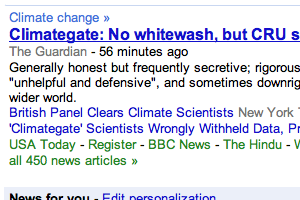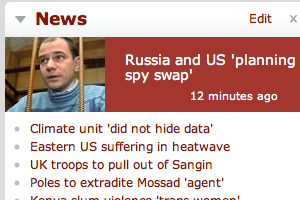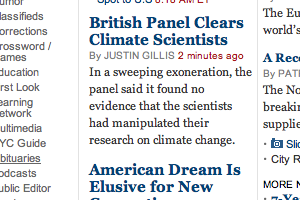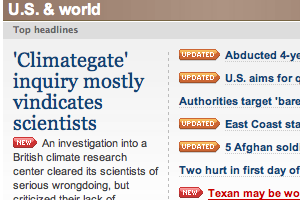World: Global warming e-mail whodunit heats up as new e-mails surface
- It smells a lot like a certain quadrant of the denier community. They pretend to be concerned that we are impeding development in poor countries. Only certain think tanks think that way and play that way.
- Greenpeace research director Kert Davies • Discussing who he thinks might be behind an infamous 2009 hack that led to the distribution of over 1,000 e-mails from the Climate Research Unit of the University of East Anglia, timed in such a way to undercut research being done on global warming. The story, on the backburner for nearly two years, is suddenly starting to simmer again as a result of further e-mail releases and word of an investigation in Britain. During the most recent leak of e-mails, the leaker offered up just enough details in cryptic messages to give investigators something to grasp onto. Many in the climate change community — skeptics, activists and so on — have different views on the motives of the person who released the e-mails, but it’s a whodunit which should keep things interesting in the coming weeks. source
